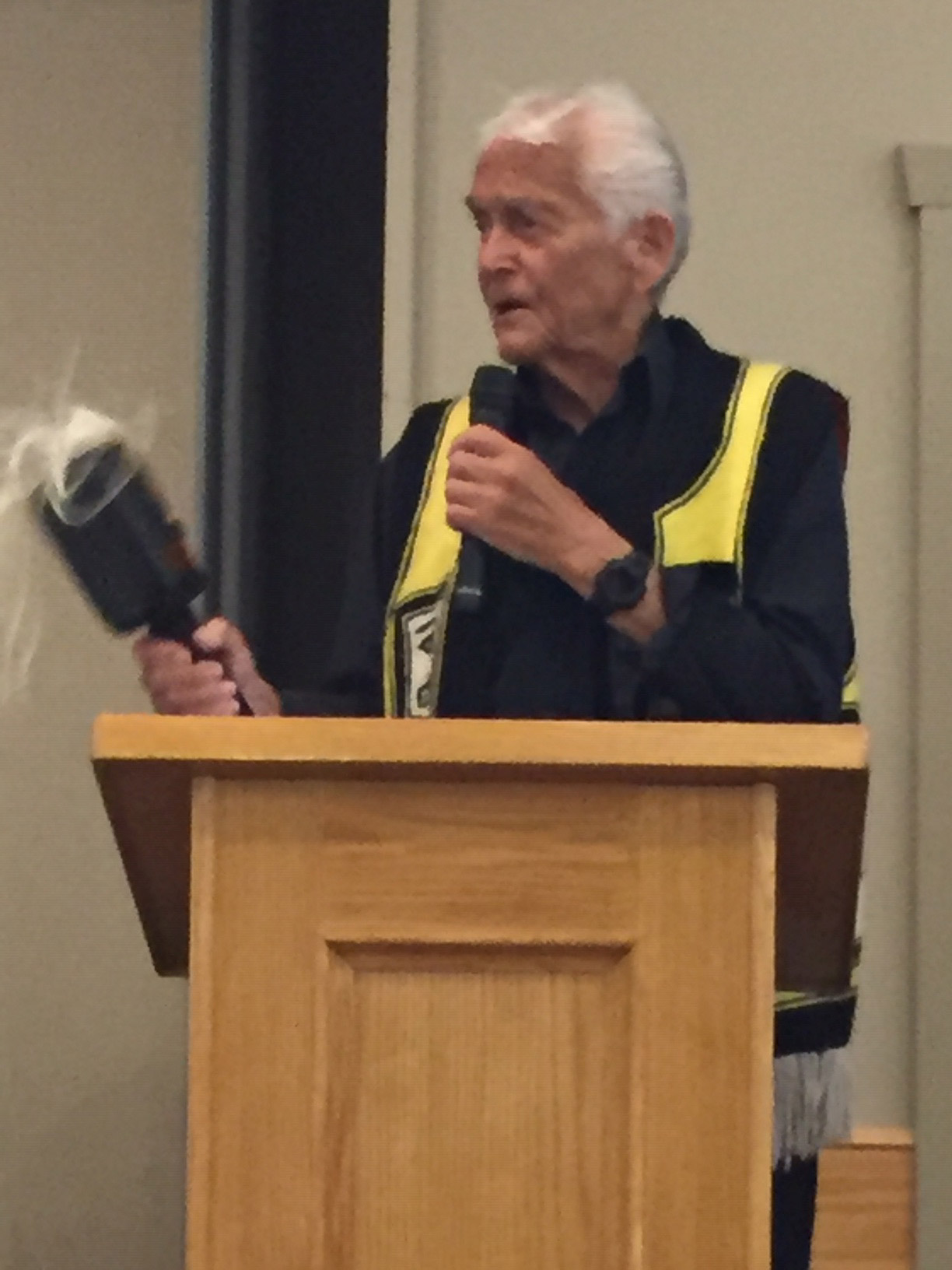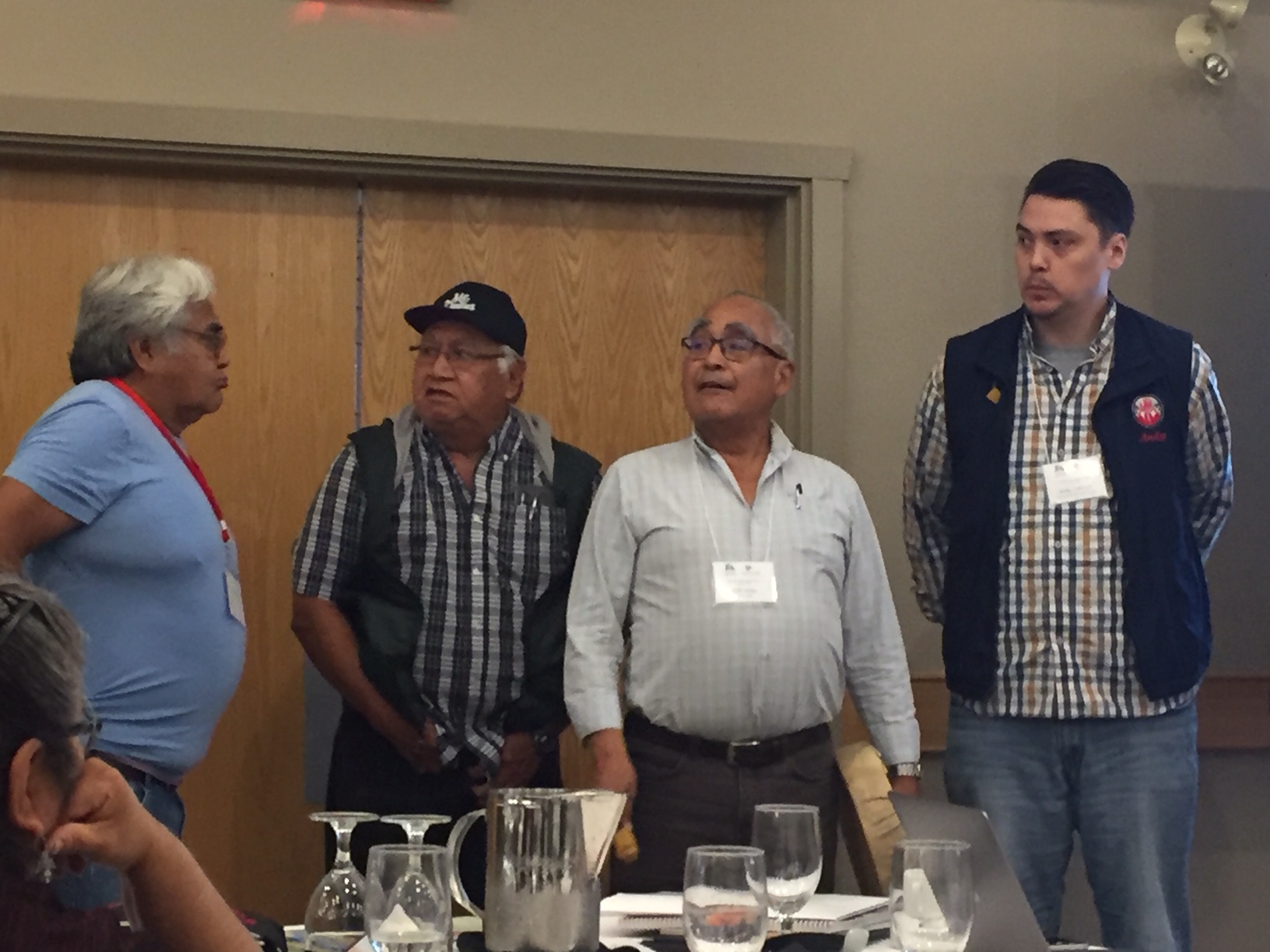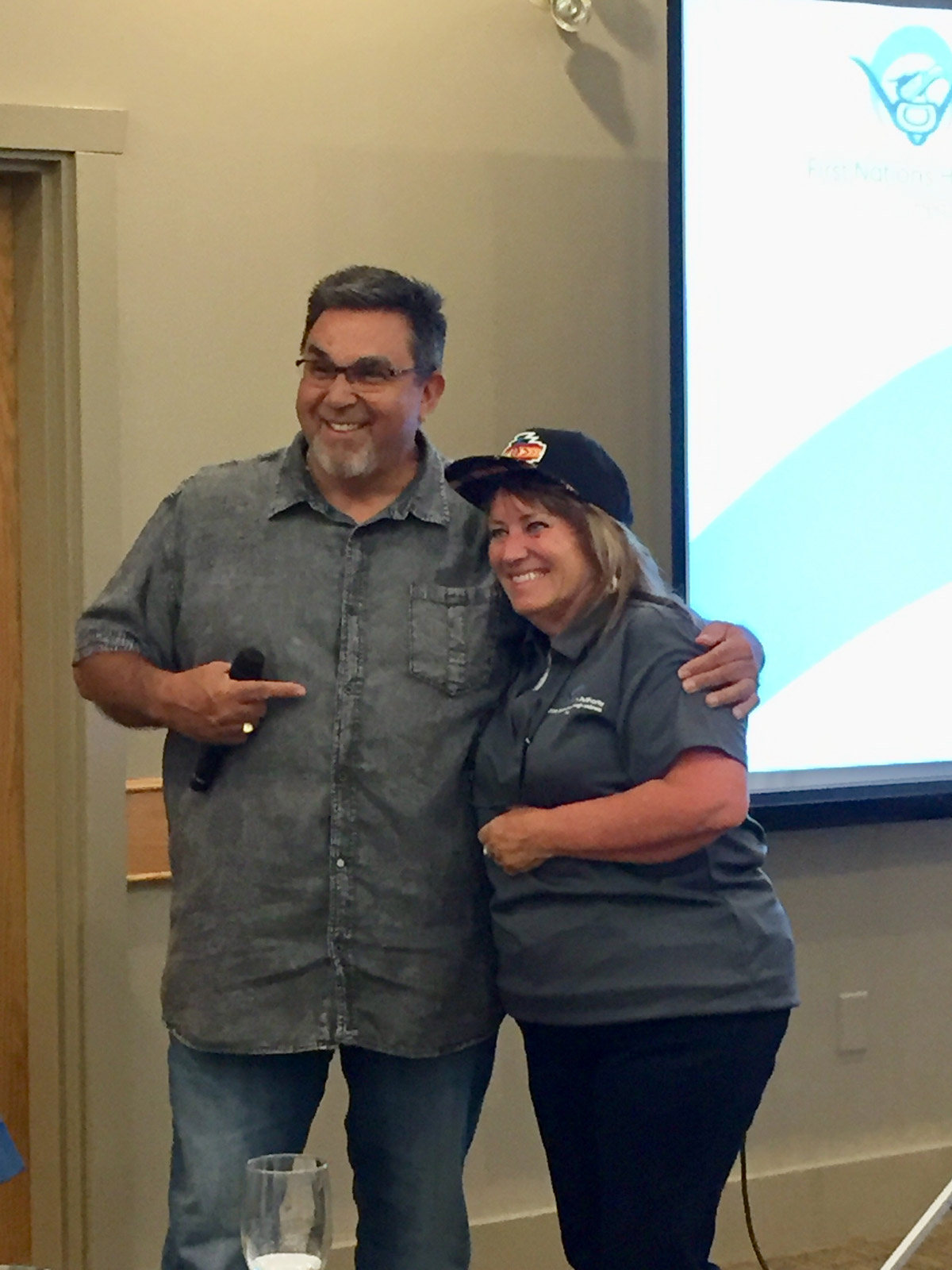Themes from the Vancouver Island Regional Caucus
The social determinants of health and, in particular, the ways to prevent and treat addictions – these topics were a particular focus of the Vancouver Island Regional Caucus held June 5 and 6 in Parksville.
Morning presentations on day one of the caucus included a panel discussing the opioid state of emergency. Dr. Shannon McDonald, the FNHA's Deputy Chief Medical Health Officer provided an update on opioid health statistics for First Nations people in BC as reported in a joint announcement by the FNHA and the province May 27. Read the May 27 news release. The report says that while First Nations people make up 3.4% of BC's population they account for 16.2% of overdose events – six times more than non-First Nations residents – and 12.8% of overdose deaths – 4.2 times more than other residents.
Most opioid events (the term used to describe both overdoses and deaths) occur in cities, and while most take place in Vancouver, the island cities of Nanaimo, Victoria, Campbell River, Port Alberni and Cowichan are also seeing a troubling level of opioid use.
"Some provincial funding doesn't reflect those hot spots," said Dr. McDonald, who called for funding equity to address the higher rate of opioid use in the province's First Nations population. "If First Nations account for 13 per cent of deaths in BC we need to be 13 per cent of the response."
That response needs to be non-judgmental she said. "These are people we care about who have a substance disorder, rather than junkies and addicts. It's a different way of looking at the issue."
Dr. McDonald ended her presentation with the caution that alcohol causes four times the number of deaths as do opioids. "We have to deal with the full spectrum of addiction disorder… We have to blanket the province with training and support for people on their healing journeys."
Courtney Defriend, Regional Manager of Mental Health and Wellness, described how the FNHA island team is working to do just that through the work of peer coordinators organized into five community action teams. Their focus is on four actions:
- Prevent people from dying
- Keep people safe when using substances
- Create an accessible range of treatment options
- Support people on their healing journeys
Thomas Hleck of the Hulhetun Health Society described a SMART program to support addiction recovery, with SMART standing for Self-Management and Recovery Training.
"It's more personal than AA [Alcoholics Anonymous] and it's not reliant on recognizing a higher power," he said of the US-developed program. "It focuses on changing thoughts and behaviours."
SMART participant Kalem Thomas gave a heartfelt description of his experiences in the program and how it has helped him recover from his addiction. Delegates gave him a standing ovation to acknowledge his courage in sharing such a personal story and to support him in his ongoing wellness journey.
Thomas said the FNHA is willing to support the training costs associated with implementing SMART programs, with one training session already scheduled for the end of June in Duncan.
The focus on the social determinants of health continued with a report on the 10-year strategy on this topic from the regional representatives of the First Nations Health Council. The FNHC works as an advocacy body to make progress on the social determinants of health – that is, the root causes of ill health. The 10-year strategy will coordinate resources at the federal and provincial levels to invest in community-driven, Nation-based governance and service delivery. Examples include:
- Developing a mental health and wellness reporting framework
- Developing a First Nations partnership strategy to re-claim and re-build traditional governance structures
- A Memorandum of Understanding (MOU) between the federal and provincial governments and the FNHA to each provide $10 million for mental health initiatives that address the root causes of mental illnesses. Communities that wish to find out more about applying to the program and/or receive assistance with their applications are encouraged to contact Courtney.defriend@fnha.ca for more information.
Among the reports on big-picture, longer-term programs to improve the determinants of health were examples of smaller scale success stories. For example, the Kwakwakiuk Family Team supports women giving birth by working with doctors and other health care providers to provide more seamless care that's closer to home. Since the program started in 2017 only one infant has been removed from home.
Another example is the Elders in Residence program introduced in island hospitals this year "to help establish those hospitals as places where we belong," said Brennan MacDonald, Regional Executive Director.
Multiple speakers noted the importance of a sense of belonging and how it is closely associated with a connection to culture. A presentation on the Warriors program for young men highlighted this point. Launched five years ago in Ahousaht, the program takes boys out onto the land and sea to learn how to hunt, fish, camp, and absorb other cultural lessons from their Elders. A similar program is being planned for young women.
Caucus co-chair Les Doiron raved about the positive influence the program has had on its participants. "This to me is community building. This to me is saving our souls. This is going to help all of our kids grow up and have a good life." (Watch the Warriors video)
Jenn Smith, the Island Region's Living Marker (a community member chosen at the time of health transfer to witness and track the evolution of the FNHA) closed the caucus session with the observation that "the highlight for me was talking about our roles. Not so much about titles - but leadership."
Noting the success stories that offer inspiration and hope among the many challenges faced by First Nations communities, she said: "we can go a really long way with a little hope."
Snapshot
• Participants included 11 Chiefs, 24 Proxies and 35 Health leads
• Caucus co-chairs were Les Doiron, Tania Dick, and Telaxten (Paul Sam Sr.)
• This caucus focused on governance only – a new change for all regional caucuses in response to recommendations from delegates and leadership that conversations about political/governance topics be separated from technical/operational topics.
• Colleen Erickson, FNHA Board Chair presented the FNHA Summary Service Plan highlighting recent work as well as key priorities for the FNHA in the year ahead. Read the Summary Service Plan here.
• Brennan MacDonald, Regional Executive Director, reported on the region's Bi-Annual Report that was included in the meeting packages.
Infrastructure
Grand Chief Doug Kelly, announced that the province and the FNHA will spend $40 million ($20 m each) to build or renovate six or seven treatment centres. That announcement was made at the FNHA's First Nations Primary Care, Mental Health and Wellness Summit in Vancouver.
Health Benefits
Darren McKnight and Andrea Oberdieck of FNHA's Health Benefits team described the plan to transfer the administration of dental, vision, and medical supplies and equipment benefits to new partner Pacific Blue Cross, effective Sept. 16, 2019. The transfer follows an extensive community engagement process as well as consultation with health care providers and First Nations health leaders.
The new plan will offer improved coverage for many health services, such as teeth cleaning, dentures, eye exams and eyeglasses. Some delegates asked how soon details will be available. They will be distributed this summer via the FNHA's website, e-news and social media channels as well as through community meetings with the Community Relations Representatives from Health Benefits.
• Mental Health and Wellness – As mentioned above, the First Nations Health Council is developing a mental health and wellness reporting framework. There are several ways to provide input, including a teleconference interview; online survey; or participating in a regional event this summer. For more information, call or email Betty Bryant at betty@nicwa.org or 503-222-4044, extension 121.
• Partnership Accord with Island Health - Brennan MacDonald, Regional Executive Director, reported on the partnership accord signed between Island Health and the FNHA in 2012. Initial evaluation reveals evidence of innovations and transformation in the way the partners work together, although awareness and levels of engagement vary. Relationships between the two organizations are strengthening, however, with training in cultural safety and humility enhancing awareness about First Nations perspectives on wellness and the social determinants of health.
Photos

Bill Cranmer of the N'amgis and Living Marker for the Island Region helped open the Island Regional Caucus with a song to ground the work of the delegates. Bill returned later to share a song that he learned from his father, who recorded it in 1938 while working with anthropologist Franz Boas. "These songs tell the history of our people," Bill said.

"Language is our strength" said one of the delegates to the Vancouver Island Regional Caucus. Cliff Atleo agreed and led a song of the Nuu'chan'ulth people. "It's our anthem!" he declared. "This song lets our ancestors know we are doing what we should be doing."

Les Doiron, co-chair of the Island Regional Caucus, presents Candy-Lea Chickite with a baseball cap in appreciation for her hard work as the Health Benefits Community Relations Representative for the Island region. Les had earlier called on delegates to model lateral acts of kindness and said he wanted to do the same to Candy-Lea, who is an avid sports fan.

